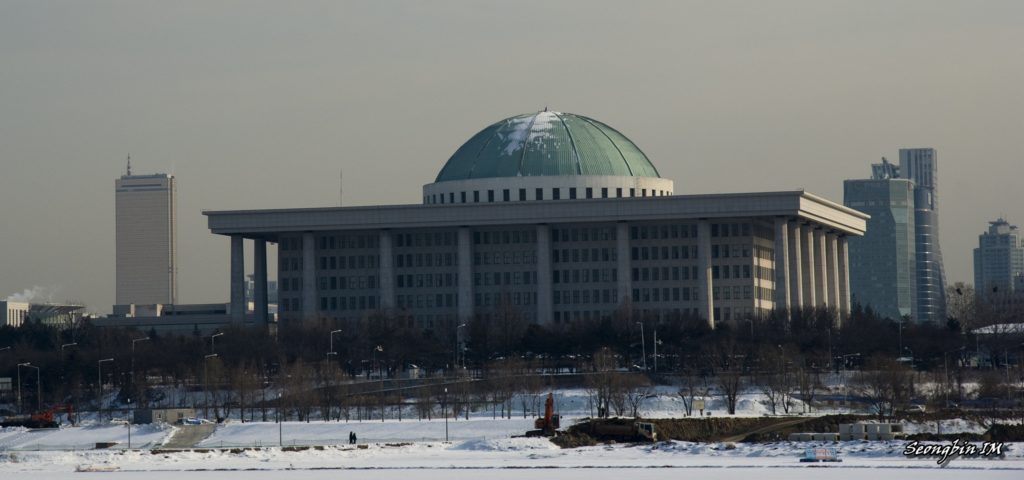The Peninsula
Are Parliamentary Procedures to Blame?

This briefing comes from Korea View, a weekly newsletter published by the Korea Economic Institute. Korea View aims to cover developments that reveal trends on the Korean Peninsula but receive little attention in the United States. If you would like to sign up, please find the online form here.
What Happened
- Last year, the National Assembly failed to pass several crucial bills – including ones dealing with child safety and police investigation – due to protracted political strife over a handful of controversial bills related to electoral reform and prosecution reform.
- On January 9, the National Assembly held a plenary session and belatedly approved a total of 198 bills, even though Liberty Korea Party (LKP) delegates refused to take their seats.
- Prime Minister-designate Chung Sye-Kyun cited a 2012 law – which prevents the fast-tracking of legislation that does not carry support from three-fifths of delegates – as one of the causes of the current dysfunction.
Implications: The National Assembly’s inability to overcome internal gridlock elevated the stakes for the ruling and opposition parties to secure more seats in the upcoming legislative elections in April. If the ruling party gains a majority in the unicameral chamber, it will likely move to make changes to the parliamentary procedure. While the most immediately urgent bills related to pensions, personal data use, and police investigations were finally approved last week, revisions to the legislative rules could help President Moon maximize his ability to enact changes in the remaining two years of his term before the 2022 presidential election.
Context: While the current National Assembly has been criticized for its failure to pass key bills, the gridlock is the result of the legislature’s ongoing effort to grow into a more democratic body. The 2012 ‘National Assembly Advancement Act’ was adopted to prevent any one political party from unilaterally overruling opposition parties with a simple majority. By creating more time and space for dialogue, the reform was also designed to dissuade lawmakers from resorting to physical violence. As part of these changes, it re-introduced the filibuster which had been abolished under authoritarian rule in 1973. These reforms can be seen as part of institutional changes that began with South Korea’s democratic transition in 1987 – and questions about their effectiveness will catalyze discussions that could further strengthen the country’s democratic institutions.
Korea View was edited by Yong Kwon with the help of Gordon Henning, Soojin Hwang, and Ingyeong Park.
Picture from flickr user Seongbin Im
